Clemson's Blueprint for Industry Excellence - PODCAST TRANSCRIPT
March 25, 2024 at 12:00 p.m.Editor's note: The following is the transcript of a live interview with Alison LaValley, Piers Dormeyer and Dhaval Gajjar from Roofing Alliance. You can read the interview below or listen to the full podcast.
Intro: Welcome to Roofing Road Trips, the podcast that takes you on a thrilling journey across the world of roofing. From fascinating interviews with roofing experts to on the road adventures, we'll uncover the stories, innovations and challenges that shape the rooftops over our heads. So fasten your seat belts and join us as we embark on this exciting roofing road trip.
Heidi Ellsworth: Hello, and welcome to another Roofing Road Trips from RoofersCoffeeShop. My name is Heidi Ellsworth and we're going to be talking today about something I am very passionate about. And that is the roofing industry's initiative into construction management schools. The Roofing Alliance has been leading the way for many years and they have been doing some funding, initiating hands-on to get more construction schools involved in the roofing industry and get roofing into the schools.
So we have brought the experts from the Roofing Alliance, here today to talk about these initiatives and what is going on, learning more about how we are teaching roofing in universities. It's so exciting. So I am thrilled to introduce our esteemed panel today, which we have Alison LaValley, Piers Dormeyer and Dhaval Gajjar. I'm going to let them all introduce themselves and I'm just so excited to have you all here today. Welcome.
Alison LaValley: Thanks, Heidi.
Piers Dormeyer: Thanks. Glad to be here.
Heidi Ellsworth: So let's start with some introductions. Alison, let's start with you. If you could introduce yourself and tell us about The Roofing Alliance.
Alison LaValley: Great. Well thank you Heidi, and thank you first of all for hosting us today. It's really important that we talk about this curriculum and all the initiatives that the Roofing Alliance is doing. I'm Alison LaValley and I've been serving as the executive director for the last few years and been with NRCA for 35 plus years. So to say that roofing is my life and that I'm passionate about it, is probably an understatement. But I am extremely excited to talk about this today. This is probably the construction management work that we're doing within the Roofing Alliance and the curriculum that we are using to educate the students.
And now what we'll be talking about today, the professional development courses. They are meticulously crafted and really, I think a game changer within this industry as far as educating everyone really at every level within the industry. And I think that's what's important to talk about. So, more to come.
Heidi Ellsworth: So exciting. I love this. Piers?
Piers Dormeyer: Yeah. Thanks, Heidi. Real privilege to be here with you guys today. I'm currently the CEO of EagleView Technologies. And personally just very passionate about higher education and how that's becoming an option in our roofing industry. So, look forward to the discussion.
Heidi Ellsworth: I love it. And you are also leading the task force on getting more information out about the roofing courses, right?
Piers Dormeyer: I am. Thanks for reminding me.
Heidi Ellsworth: I just want to make sure.
Alison LaValley: [inaudible 00:03:19] doesn't know your job. And don't let him be modest.
Heidi Ellsworth: I got to keep you straight. And last, but certainly not least, Dhaval?
Dhaval Gajjar: Well, thank you, Heidi. Again, it's always an absolute pleasure to come to RoofersCoffeeShop and do a podcast. And thank you for inviting us and getting this initiative known to the larger audience about all the good things we're trying to do. So I'm just honored to be here with you all and just excited to be here. But to introduce myself, my name is Dhaval, I've been at Clemson University for about six years now. I started when I came to Clemson as a professor, and now I'm also the undergraduate program director here.
And it's been a fun journey for the last four to five years in developing the roofing curriculum. And I would like to thank the Roofing Alliance for funding the initiative. And it's very exciting to see where we are today, where we were four years ago, where we're today, where we're going to go in the next near future. So again, thank you for being here and excited to talk about all the good things we're trying to do for the industry.
Heidi Ellsworth: That is great. And I do want to say for you, you can't see this, but Piers is actually at Clemson right now with Dhaval and Piers will be speaking today. So, congratulations on that.
Dhaval Gajjar: Thanks.
Heidi Ellsworth: So, Alison, there is a beautiful history about construction management with the Roofing Alliance. Can you share that with everyone? How first of all, the Roofing Alliance really got involved with the construction management universities and then where we're at today with the roofing courses?
Alison LaValley: Sure, I'd love to. Really, the construction management initiative is probably 10 plus years old. It starts back with our student competition that we host every year at the International Roofing Expo. We are now holding faculty retreats to educate faculty about how to implement this terrific curriculum, and it goes on and on. But one of the biggest things that we have done and do in large part or most part, to Dhaval and this work at Clemson is the development of this curriculum, really to be able to educate these students. And it starts at Clemson, right? But this curriculum, the beauty of it is it's owned by the Roofing Alliance, and Clemson has allowed us to do that, and then also share it with all of these schools. So then when we're talking to these faculty, if they say, "Well, I'd like to implement a class, two or all three of them." Were able to share the full curriculum, whether that be the PowerPoints and the study guides and the syllabus, et cetera.
And so, that's what the beauty is that we are able to share this nationwide and it's catching on. And we are being able to educate students and really make them understand about the careers and roofing. That roofing is a very viable, viable option to get involved with. And whether that be when they're involved at the student competition, they're learning that, from the construction management side. But now with these classes and the success that we've had with Clemson and the work that Dhaval and his team is doing, we started with one class. And now we have three full classes and we'll be implementing a fourth, which we'll talk about later, and the amount of students. And people aren't being dragged into these classes, right? There's waiting for these classes. So it's just unbelievable how everything is clicking.
And when you've got people like Piers and other roofing professionals in the industry with contractors, manufacturers, suppliers coming in as guest speakers, which Dhaval always says is best part of these classes. He compliments us like that. But they're able to hear from industry as well as from the academic side. So the collaboration and the partnership between industry and academia has been outstanding. And so, right now we have three courses at Clemson. And the beauty of that, again is that they are transferring to industry. So what we're really kind of talking about here or how we're educating the industry now, no matter what level you are at the industry. So these three classes, they're entirely self-paced and they serve as excellent onboarding tools for new hires.
And it's again, a broad spectrum of roles. You can be office person who can be an estimator, you can be a project administrator or foreman in sales. Whatever the case may be, these classes fit for you and they're tailored for those learning experiences. So the first class, real quick, Roofing Fundamentals, designed really to provide a comprehensive understanding and study of essential elements that are really critical to this industry. You have key topics that include roof systems, their assemblies, reading blueprints, specifications, estimating safety, repair maintenance, technology, which Piers, his expertise that he shares with the students is phenomenal.
And then we've got a second course, Roofing Management, and that really builds on the first course and goes to a deeper level within the management aspects of the industry. We talk about building code, sustainability, risk management, quality control, quality assurance, crew management, scheduling, et cetera. And then the third course, Roofing Business Principles and Leadership really addresses concepts more towards being an entrepreneur in the industry. And we address leadership, organizational culture, negotiation, starting a sustaining over roofing, business procurement, sales and marketing innovation. So, so much packed into these three courses.
But whether again, you're at any level, especially new hires, sales, et cetera, we've got, which I'm sure we'll get into in a little bit. And we have a prime example of Beacon Building Products who has adopted this Roofing Fundamentals course for the new hires and their outside and inside sales. So now they're requiring it. So that's the possibilities of what this curriculum come can do, again, not only for the students but now for the industry professionals. So, you can tell I'm excited about it and I could go on and on. That's just really a brief and condensed over to you of kind of where we are right now.
Heidi Ellsworth: It is been so much, and just so everyone knows what this is this is initiatives that come from the membership of the Roofing Alliance. And then it's for universities, individuals who bring funding requests to the Roofing Alliance to help get funded. And that is Dhaval, how you became involved with the Roofing Alliance. So maybe you can tell us a little bit about that experience of you bringing this to the Roofing Alliance, but then also how does Clemson University, how have they become this unique hub for the roofing education?
Dhaval Gajjar: Sure. I mean, like Alison mentioned, we're on our fifth year right now. And so, it has taken us four to five years to get to where we are today. And for some people that might be, "Oh, that's too slow." But that is actually very incredible at how much we're able to get done over the last four to five years. And to echo what Alison said, it's because of industry professionals, like Piers who have invested their time, their resources. It's because of other manufacturing companies, contracting companies, distribution companies that have been a huge success for this partnership.
But really going back at that first year of partnership between the Roofing Alliance and Clemson University. It really dawned on me when I came to Clemson University, before coming to Clemson, I was in the industry, I had a roofing experience, I was a roof inspector as part of my graduate work, I was also working with couple manufacturers as part of my PhD dissertation. And that's where I got intrigued by our industry. Then coming after that, graduating, I got to work on a large building portfolios as an owner rep for a contracting company. And again, roofing was a huge part of that scope.
And so when I moved to Clemson, one of the things I realized that our industry being such a robust industry, such a phenomenal industry, that it's not being talked about at all. And to me that was very shocking. Then when I look at our curriculum and not just Clemson, you look at any construction management curriculum across the nation, what we find is roofing was only talked about for maybe 30 to 45 minutes. That includes undergraduate, master's and PhD. So, that was very sort of bothering as we have this amazing industry with the great career paths, so many different opportunities at all levels in the supply chain that we need to actually educate the students and the future workforce that there's a career path in our industry.
And so that was a thought process that started back in 2019. And I got introduced to the Roofing Alliance back, this was five years ago. And of course, the Alliance has a funding request where they review the funding request every year and you submit a proposal. And so decided why not submit a proposal to introduce roofing curriculum into four year institutions? And actually beyond, if we think about it at this point. When I actually presented to the Alliance, there was so much excitement in the room. There was so much enthusiasm, there was so much support that this was a no-brainer when we actually started this initiative. And at that time, we only said, "It'll be one course, right? We're just going to do one course and see how that goes. Let's do a pilot test, and then if it goes well, then we can think about doing more courses."
And happen or not, the first phase was very, very successful. We had 27 students enroll in the first Roofing course back in 2019, and the students were hungry for our industry. They saw the word roofing and they were intrigued by, "Roofing, what is that going to be?" So they enrolled in the course and they came out and they loved it. And we were very fortunate to place one of our first students from that first class in Florida in the roofing industry. And he's still in the industry today. Now he's a project manager running large roofing projects. So it was very incredible to see all the success stories that came out of the first course. And then we said, "If we have a success, let's create two more courses." Because our roofing industry has so robust, there's so many things to go through. There's so many topics, so much content, so many different types of roofing systems that we had no problems coming up with other two courses.
And as we started offering second and third, we saw the same success, just like the first one. And like Alison said, one of the beauty of this is what makes Clemson special? Clemson is not special. We're just the creators of the course, we're just the initiators of something that we want to see happening at the national level. So this Roofing program is developed at Clemson, but it's not a Clemson program, it's an Roofing Alliance initiative, and they own the content and where all the content is available for any four-year or community colleges, technical colleges to implement these courses.
But one last part I want to talk about is these courses were not created in a vacuum. This was not a one-person initiative, this was developed by the industry. We did research studies in talking to people as to, "What should we incorporate in these courses? What topics do you want to talk about? Within each topic, how much information do you want to give?" So this was really a collaboration between industry and academia, like Alison mentioned, to develop these courses. So these are not built in a vacuum, these are vetted by the industry, and these have been reviewed by the industry. And they have put their thumb down and Roofing Alliance has approved that, "Yes, this is a very robust and quality curriculum."
Piers Dormeyer: And if I may, I'll add to that.
Heidi Ellsworth: Yes.
Piers Dormeyer: Just having been one of those people in the audience, when you first came to the Alliance and presented this vision. For myself, not only was this completely obvious and a no-brainer, as you mentioned already, I was frankly a little bit shocked that there wasn't this type of a course out there already. And not just out there already, but standard within the building construction curriculums across the country in higher education. You start thinking about the importance of a roof on a structure, it's right up there with foundation as the most important things that you got to get right if you're building buildings or homes or whatever. So this was just such an obvious thing for us to support and really drive and get behind.
Dhaval Gajjar: Yeah, absolutely. [inaudible 00:16:07]
Heidi Ellsworth: It's so true, Piers, I was there too. And same thoughts. And Piers, to take that further, we had the courses that are being taught at Clemson and now at other universities, and I'm sure we'll talk about that a little bit more. But we also have this opportunity for the industry to take these classes and to get a certificate of completion with the Paw and the Roofing Alliance brand on it. It's really a very special and unique thing. As the leader of the task force working on this, on getting the word out there on the communications of getting it out there. Tell us a little bit about what you're seeing and how the courses are being used today, some of the people who've already taken them and why companies and individuals should be really getting in line for this.
Piers Dormeyer: Yeah, great questions. I'll just start by talking quickly about just the importance of training and really scaling companies. And I always tell these stories about meeting with contractors and not just contractors, there's more to roofing than just the roofing contractor. There's the entire supply chain that supports it. And if you go to all of those different stakeholders, if you will, across the industry, writ large training and onboarding is among the largest barriers to scaling and growing a business. And it just requires so much resources, and it's generally done by your best people that have day jobs. And the training of new employees is, and oftentimes, and even we're guilty of this in a lot of ways, is just rushed and isn't done in a really effective way.
And so the return on investment for a program, like the one that Dr. Gajjar developed along with the industry to just get a roofing contractor, a salesperson, a branch manager of a distribution location, the basic 101, information about the roofing industry is invaluable. And we're not talking about, "This is going to save you 20% versus doing it in-house." It's hundreds of percent of ROI or maybe even greater than that. So to me, I just think this is one of those things that you can't afford to not do. And you're already spending time and resources on this type of education, on this type of training, you're just not getting as high quality as what this offers. So first of all, you got to do it. You got to make sure that the content's relevant, content's relevant for your business, you got to take advantage of that because you'd be foolish not to.
I also think that there's incredible benefits in terms of just legitimizing our industry as well. I think that the roofing industry has an image problem, and it's very thought of as very blue collar and in no way, shape or form do people think about the intersection of higher education and roofing. And I think that's an incredible mistake because that's holding back so much talent, so much innovation that had these people been exposed to this type of education, we would be further along and we wouldn't have maybe the image problem that we have. And having a world-class brand like Clemson behind the program is huge for that as well.
Heidi Ellsworth: And to follow up on that, and maybe Alison, you can start us out on this. But we have industry professionals right now taking the Clemson classes and getting certificates. What are you seeing... Maybe tell us one of those stories and also what you're seeing, how companies are starting to get more involved?
Alison LaValley: Right. Yeah, it's been a process and it's been successful so far. Kind of to Piers' point, we've got to do further outreach, but we have individuals within companies who, some had just taken the Vertical Fundamentals course that I mentioned. Beacon has adopted it, and now it's now requiring for all outside sales, inside sales and new hires as part of their onboarding. That's how important they're embracing this and that they see this as it appears to a world-class curriculum. And we have a lot of other individuals too, who are feeling a sense of pride, not only whether they're affiliated with the Alliance or not. But because of the affiliation with Clemson, that probably it means something because they know it wasn't just developed to, like Dhaval said, at a vacuum, it was a lot of industry members.
I mean, if you could see the amount of time our members have spent on multiple committees working on this curriculum, and again, presenting like Piers is doing today and that you did last week, and a lot of contractors have, it's really important. And these certificates that people are getting are important too, because after every class there is a certificate of completion that's jointly conferred and presented not only from Clemson but the Alliance. And then for anyone that completes all three courses, then there's a Roofing Professional Management Certificate awarded. And we've had some people even go through all three of those classes. When you think about the investment, aside from the money, but the time, these classes are... it takes about eight hours to complete overall. It's self-paced, the individual has 60 days to complete it, can go on and off and do it.
And I've had... I know one person in particular that did it while her child was playing baseball. So while they're at baseball and she's sitting on the bench, she was taking the class when she could. And she would take it and do a module or two, and then she'd come back, and no kidding. And that's how... And she said it was so informative that she didn't waste her time. She goes, "Well, I'm not scrolling on my phone." Right?
Heidi Ellsworth: Yeah, that's great.
Alison LaValley: [inaudible 00:22:44] doing something. So it works with your schedule. We're not requiring anybody to devote eight hours in one day to do this. We've set it up that way in particular, in those modules. And to be able to do that over time, I think it's really important that we work with people's schedules, especially with industry professionals. So I think there's a lot to be said for that. And again, we've had one person in particular, they went through all three classes and as soon as they were available and were done again within an hour. And I know a member of ours that did them on the plane when they were sitting on the plane and took them.
And this person that did it on the plane is very educated in roofing, he's been in the industry for 20 plus years and said to me, "Oh my God, I learned a lot. I learned a lot." I won't divulge his name, but he's really involved with the Alliance and we were so thrilled to hear that. And so, you can imagine about someone that's onboarding, and that's brand new, to be able to really embrace this curriculum on their schedule. It's important and it's invaluable.
Heidi Ellsworth: It is. It is. To have this for our industry. Go ahead.
Dhaval Gajjar: Then Heidi, I just want to add to Alison's point is, this was really a demand from the industry. I mean, when we started this podcast, we talked about a college curriculum. So I just want to understand how that bridge happened, is as we were developing this curriculum, the roofing industry was so intrigued by how robust the curriculum was. And then the request was, "How can we put our professionals today who are onboarding and who are currently in the industry go through the program? Because it's very impossible for someone in the industry to come to Clemson and take these college courses." So we had to find a way where we bridge the gap where we wanted to access the curriculum for the industry professionals. It was very a unique way of taking what was developed and then tailoring it for industry professionals.
So if you look at the content for the industry professionals, the content remains the same. But what we have done is we have actually went back and understood what are some of the best practices in learning? How do people actually learn? How do we adapt this to professionals that are working eight to 10 hours a day and they might not have time? How can we make it flexible, adaptable, but at the same time get all the information and knowledge that they need to understand about our industry? And like Alison mentioned, this is a self-paced course. You don't have to sit down for eight hours in one sitting. You have 60 days to complete the course.
There's modules that are split up, and each module is about six to eight minutes, and there's a progress quiz at the end. Now there's animations that come up, there's different pictures and graphs and charts that come up along the process. It's very interactive with the user as well. So this is not just about the content, but also about how the actual courses are hosted. And as a very interactive platform between the user and the interface. We have had about 110 professionals now finish the course. And I actually just pulled up the numbers as we were speaking because we ask every professional, "How would you rate the course?" And I'm going to share some of the numbers just quickly, is if we ask them, "Has this helped you in understanding our industry better?" And it's 4.7 out of 5.
Heidi Ellsworth: Wow.
Dhaval Gajjar: Out of 110 professionals. And the other question we ask, "Is this course going to help you in your career as you advance and as you move into your industry?" 4.7 out 5 again. So the industry professionals are loving the course, who have taken that. And the beautiful part is you get a certificate without having to go to Clemson College, you get a certificate that is a Paw and a Roofing Alliance logo. So like Piers said, it's a no-brainer. It's the best curriculum that you're going to find in roofing. And it's going to prepare not just the onboarding process, but even someone who's in the industry that just wants to learn about other sectors of the industry.
Heidi Ellsworth: And the part I love is when you talk about bridging the gap. So you've bridged the gap where we now have this professional curriculum that anyone in the roofing industry... anyone can take, and get these certificates of completion. But we've also then on the same time, we've really brought roofing into the classroom. Where, obviously they're taking three classes, they are interested in it, we have people getting hired into that. Piers, you're there today speaking to the class. We were there a couple of weeks ago, it is just a phenomenal experience. But how do you feel that the Clemson collaboration with the Roofing Alliance, how is that bringing students and the industry together? What are the benefits? And I guess, how are we really getting in touch with this next generation and making roofing cool and wanting them to come into the roofing industry?
Piers Dormeyer: Yeah. I mean, it's so important, I think, to be interacting and showing these students that there's a career in the roofing industry. And this is, I can't think of a better way to really highlight some of the really exciting things that we're doing for a very, very, again, important part of the building sciences. I think it's critical. Additionally, going back to the industry, again, a little bit of an image problem. People don't think of the roofing industry as a viable career option for someone who's educated. And these students are showing us that maybe that's not necessarily the case.
We have more people than they can even handle that are interested in the Clemson course. And not just the course at Clemson, but at some of these colleges across the United States. And it also helps us by developing these students with some understanding of the roofing industry, it gives us such a supply of outstanding talent. So you're getting these students that are just really eager, they're learning the most recent advances in technology and building processes and techniques. And then we're able to get them on the other side and develop them into leaders for our industry. So, it's wins all around.
Heidi Ellsworth: It really is. Dhaval, what do you see how Clemson... And you have been very involved with the other universities that are also providing this curriculum? Maybe talk just a little bit about that and how this is preparing students to really have opportunities in roofing.
Dhaval Gajjar: Absolutely, Heidi. And to Piers' point, I completely agree that it's the image. Unless we actually intervene and tell our future workforce as there's a viable career path, that this is a professional industry where you have estimators, you have project managers, you have superintendents, you have directors, you have foreman, you have apprentice, you have... It's a robust, it's a very professional industry and that's not what it's been thought about. So what we're doing is not only educating our students about roofing, but we are changing the image of our industry to show if for what it truly is. And to me, that is even more exciting than just teaching the content. We're actually changing how people perceive our industry, which to me is a great effort. And one of the ways that... When we started this curriculum, I'm not an expert in roofing myself. I love roofing. I know something about roofing, but I'm not an expert in everything.
And when I talk to industry professionals, they would agree with that, that even them, they have a niche that they work in and that's their expertise. So one of the coolest things about this initiative was to find the experts in their specific field at a national level and bring in the best of the best to contribute to the content and development of the actual curriculum. And one of the other part that is always important is we have a curriculum, we have the best content but how do we connect students to the actual companies that are looking for them to hire? The best way to do that is for the professionals to come in and talk about their specific expertise and make relationships. It's all about relationships. So what this creates is Piers coming in, and you came in two weeks ago, and students come up and they talk to you, make relationships, you build bond. That's what it is, it's connecting workforce with the companies.
And that's what a job of the university is, right? You educate and we connect them to their future potential career path. And so that's all we're trying to do. This puzzle and the model we have has worked really well. And the beautiful thing about this is this model is also being implemented by other universities that are implementing the roofing curriculum as of today. So as we're doing this podcast, we have at least six other universities and colleges that we know they're offering the same curriculum in roofing as of today. So now we're not only developing the workforce in the Carolinas through Clemson. We have universities in Arizona, California, Illinois, Florida, Colorado.
Right now, we're actually implementing roofing curriculum in all the different parts of the country. Now we have workforce development going on all across the nation. And we're not done yet, we're going to keep going. We get so many requests about the curriculum that's been developed, and it's been received so well that we're actually just getting started. So it's very exciting where we were and where we're starting off and really branching this off to other institutions.
Alison LaValley: Heidi, if I can build on even what Dhaval have said. Just yesterday, Dhaval connected me with someone else in Iowa. And he was talking to her and met her and then connected me. I sent her the link today to the first course curriculum so that she can implement it. And when Dhaval's talking about these schools, we're talking about some really major construction management programs at ASU, Cal Poly, Colorado State, Bradley, Auburn, UNLV, Drexel and Technical Community Colleges too. Dhaval went not long ago out to one in Iowa who is now implementing our curriculum. So I don't want anyone to perceive too that we're only trying to do this... we started at the university level, but this curriculum... And we've had professors or faculty retreat from these community colleges as well as the four-year institutions. So it's really, we're permeating all levels.
And one of the exciting things that the Alliance is going to hopefully be undertaking moving forward is developing sort of an industry center that will now start to hopefully even dive deeper. And when I say that, we're looking at and talking about how are we going to now approach students at the middle school level, really and at the high school level. So we may have started at the top because it was maybe the easiest to get into and maybe important for those graduating. But now let's talk about not only at the high school. But studies show that many students start to formulate what they want to do somewhere between seventh and eighth grade.
And so now, let's figure out how to present roofing to those students. And again, getting to parents and faculty, also the teachers there, because it's got to be really a partnership at every level. When we're talking about the student, you have to involve everyone. And so, we've started that at this level and now we're going to start to work our way down and try to be successful at other levels too. So, just so much going on.
Heidi Ellsworth: So much going on. And the Roofing Alliance is funding research initiatives, helping to get to the high schools, the vocational schools on so many levels. It really shows... And for people out there who maybe... for those few who might not be aware of the Roofing Alliance, this is really what they do. This is it, it's a group of industry professionals from all parts of the industry who come together with passion about uplifting the roofing industry and making these initiatives happen. It's such an amazing organization that we have, foundation, I should say we have in the roofing industry. So Alison, we're almost at the end. So how can roofing professionals be involved? How can they participate across everything we've just talked about?
Alison LaValley: Well, we welcome everybody into the Roofing Alliance. Let me just start broader, right? The big picture, the Roofing Alliance itself. What's unique about the Alliance, and you talked about it, you touched on it, was that we collaborate across all levels of the industry. And we have 196, I call them, always dedicated professionals. And those are from all across the supply chain. Contractors, suppliers, manufacturers, service providers and so forth. So we are an open book, we welcome all industry to get involved in the Roofing Alliance. And then when we start to talk about construction management initiatives and other initiatives that we're doing, we have so many opportunities to volunteer, engage at the task force level, at the committee level, attending our meetings and networking. What I always call the best and brightest, that we just come together to learn from one another. And really to, it was Dhaval or Piers that said about really change how people perceive our industry.
I mean, that is so paramount for our construction management work that we do. And really understanding and getting these students so that the future generations, part of our mission is really making sure that we provide and protect for the future. What is this industry going to look like 5, 10, 20, 40 years from now? And we want to be a part of that. And sometimes the journey is slow, but it's a journey and we are getting there. And we have made an incredible amount of progress, I would say, especially in the last 10 years when it comes to this construction management work. You can visit our website at roofingalliance.net. There's a whole information about not only how to engage, but everything we're doing. You can access all these courses there. Alliance members do get a discount on the courses and so do MRCA members. So there's a lot of opportunities there.
And I am available pretty much 24/7. If you want to connect with me, every email that I have, my mobile number's there, my email is there. Call me, email me pretty much anytime of day. I'll try to answer as quickly as I can. And let's talk about what you want to do or what that looks like. And how you want to engage, how little, how much and what that looks like. And I'd be glad to talk to you, so would any of our members. We always connect members with members to talk. You want to talk specifically about Clemson, Dhaval is always available. And our work with ASU and others, all the faculty, we're an open book. And we just want to see people getting engaged and excited about what we're doing. Because we are truly passionate about what we do. And the members, every time I talk about them, I get choked up because they're amazing, they are.
And you know what? You said it too, they are amazing at the work that they do with people like Piers and so many others involved. Best people in the world, best people. So, I can't say enough.
Heidi Ellsworth: Thank you, Alison. That is perfect. And I just... Get involved, become a member of the Roofing Alliance, if that's not possible right now, get involved. If you're involved with the Construction Management school, tell them about the Roofing Alliance. If you're involved with the community college or vocational school, tell them about the Roofing Alliance because all this is out there. And like we talked about before, take the time to encourage or finance your employees to take the classes at Clemson because they are really good. All of you, thank you so much. This has been an amazing podcast. Piers, Dhaval, Alison, you guys are rock stars. Thank you so much.
Dhaval Gajjar: Thank you, Heidi [inaudible 00:39:35].
Alison LaValley: Thank you, Heidi.
Piers Dormeyer: Thank you.
Alison LaValley: Thank you so much.
Heidi Ellsworth: Thank you. And thank you all for listening. Get involved. Of course, you can find out all about the Roofing Alliance on RoofersCoffeeShop, on their directory. Everything's there, you can get a hold of Alison, you can find out about all the information, plus all the articles that are coming out on a regular basis. And of course, just go to the Roofing Alliance website. This is something that will, trust me, help your business and the community around you and the industry overall.
Thank you all for listening. Please check out all of our podcasts under our RLW, read, listen, watch navigation on RoofersCoffeeShop or also on your favorite podcast channel. Be sure to subscribe and set those notifications so you don't miss a single episode. We'll be seeing you next time on Roofing Road Trips.
Outro: If you've enjoyed the ride, don't forget to hit that subscribe button and join us on every roofing adventure. Make sure to visit rooferscoffeeshop.com to learn more. Thanks for tuning in, and we'll catch you on the next Roofing Road Trip.


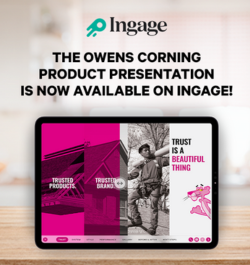










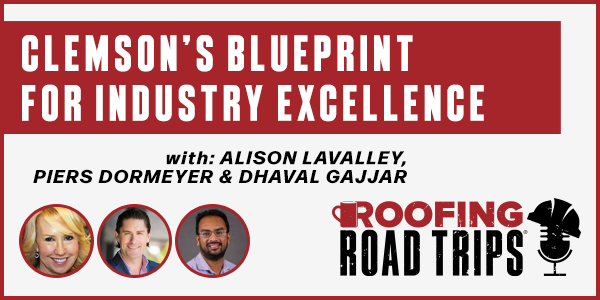
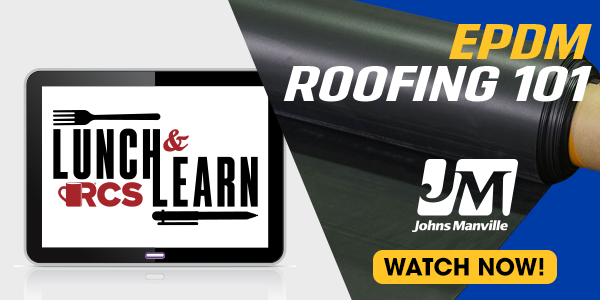
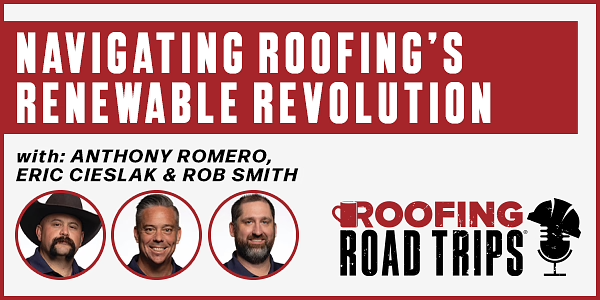
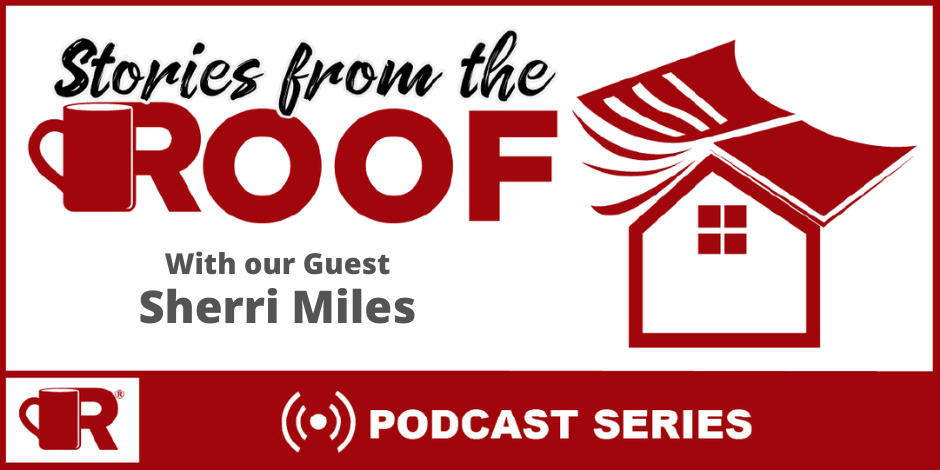





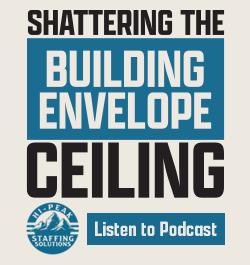
Comments
Leave a Reply
Have an account? Login to leave a comment!
Sign In